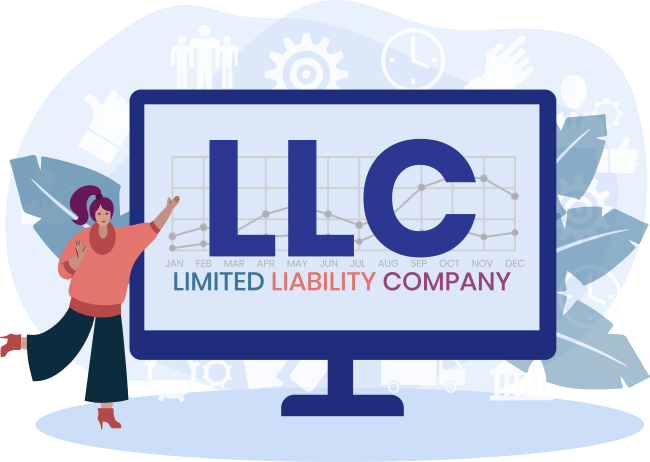Is an LLC the Right Fit for Your Business?
Choosing the right business structure is crucial, and the limited liability company (LLC) is a popular option. This guide breaks down what an LLC is, its various types, pros and cons, startup costs, and how to get started.
What is an LLC?
An LLC is a US business structure that provides legal separation between the business and its owner(s), protecting personal assets from business debts and lawsuits. LLCs offer flexibility in management and taxation, making them attractive for small businesses, startups, and entrepreneurs.
Types of LLCs:
- Single-Member: Owned by one person or entity, offering simplicity and pass-through taxation.
- Multi-Member: Owned by two or more entities, requiring a more complex operating agreement.
- Series: Creates separate divisions within a single LLC, each with its own assets and liabilities.
- Professional (PLLC): Required for licensed professionals in certain states.
- Member-Managed: All members participate in running the business.
- Manager-Managed: Designated members or external managers handle operations.
- L3C (Low-Profit): Hybrid structure for businesses with a social mission.
LLC vs. Inc.:
LLCs offer flexible structure, pass-through taxation, and less administrative work. Incorporations (Inc.) have a more rigid structure, potential double taxation, and stricter compliance requirements.
Cost of Starting an LLC:
Costs vary by state and include filing fees (ranging from $50 to $500+), registered agent fees, name filing fees, insurance, and other state-specific requirements.
Advantages of an LLC:
- Personal Asset Protection: Shields personal assets from business liabilities.
- Tax Flexibility: Offers various taxation options.
- Simplified Management: Less administrative overhead than corporations.
- Profit Distribution Flexibility: Allows customized profit sharing.
- Professional Credibility: Enhances business image.
- Variety of Ownership Options: Accommodates diverse ownership structures.
- Reduced Paperwork: Simpler compliance requirements.
Disadvantages of an LLC:
- Self-Employment Taxes: May be subject to self-employment taxes unless taxed as an S-corp.
- Limited Growth Potential: Can’t issue shares to raise capital like corporations.
- Varying State Regulations: Navigating different state laws can be complex.
- Complex Ownership Transfer: Requires member approval for ownership changes.
- Ongoing Administrative Responsibilities: Still requires some paperwork and compliance.
Exceptions to Liability Protection: Personal liability may apply in certain situations.
How to Start an LLC:
Choose a compliant business name (including “LLC”).
File Articles of Organization with your state.
Create an operating agreement.
Obtain necessary licenses and permits.
Apply for an EIN from the IRS.
Choosing the right partners and tools can significantly streamline LLC management. Consider your specific business needs and consult with professionals to ensure the LLC structure is the optimal choice for your venture.
